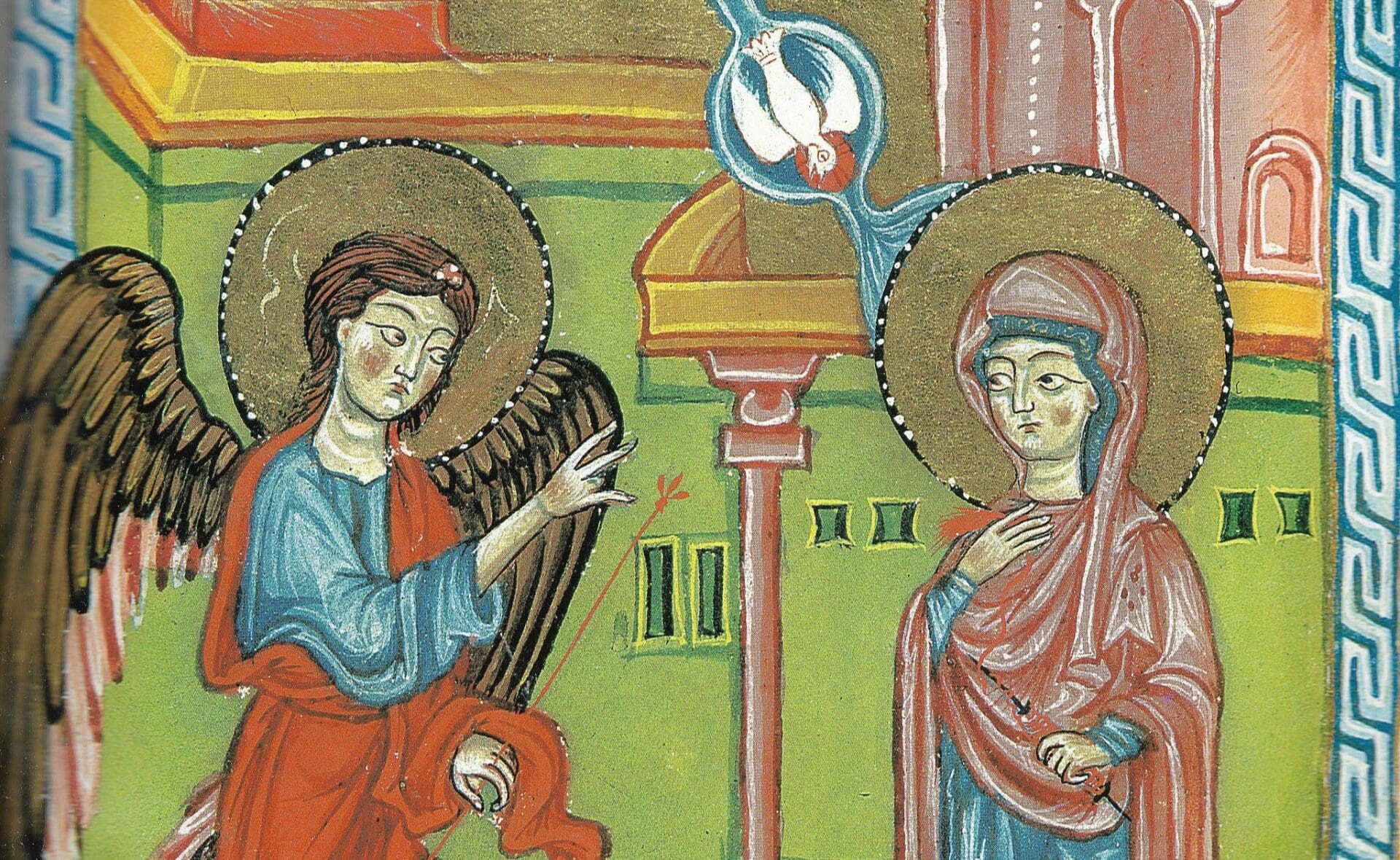Of the many mysteries of faith, I’ve found myself wondering this past Advent about the season’s two annunciations: of the birth of John the Baptist, and of Jesus. There are numerous similarities between the two: both involve the Archangel Gabriel, both announce an unexpected birth, and both messages cause their recipients—Zechariah and Mary respectively—to be “troubled.”
But there is also a stark difference in the narratives: Zechariah’s response somehow strikes him “speechless and unable to talk,” while Mary’s ostensibly similar response leaves her—in fact, elevates her—as a model of faith and obedience.
Why is Zechariah punished for his response, while Mary is rewarded—when their reactions appear nearly identical? I’ve always felt a bit sorry for Zechariah, as it seems, to my mind, that he is being unfairly treated by God.
I’ve found the answer (or an answer) to my wonder, I’m happy to report, given by Pope Benedict XVI in his short book, Jesus of Nazareth: The Infancy Narratives (New York: Image, 2002). It is true, Pope Benedict says, that in both instances Gabriel delivers a message that troubles these future parents. Zechariah’s “troubles” lead him to fear (“fear came upon him” [Luke 1:12]), and then doubt (“How shall I know this?” [Luke 1:18]), that is to say, “is such a thing possible?” Mary, on the other hand, finds her “trouble” leading her not to doubt but to ponder: “She asks not whether, but how the promise is to be fulfilled” (Infancy Narratives, 34).

Pope Benedict summarizes: Mary doesn’t react with fear but “an interior reflection on the angel’s greeting. She ponders (dialogues within herself) over what the greeting of God’s messenger could mean. So one salient feature of the image of the mother of Jesus is already present here, and we will encounter it again in two similar situations in the Gospel: her inner engagement with the word” (33).
I am loath to write (even as you surely loathe reading) what has become a commonplace: “2020 was quite a year!” Who doesn’t know this by now? Even so, Mary’s example is worth pondering as the trials of 2020 recede and the New Year begins. For now is the time for new life, for excellence, for sanctity. Want to make 2021 better than 2020? Then listen, and react, to God’s message as Mary has.
First, listen. In Pope Benedict’s book on Christ’s birth, the Holy Father recalls this remarkable line from tradition: “Mary conceived through her ear—that is to say: through her hearing. Through her obedience, the Word entered into her and became fruitful in her” (36-37; emphasis added). Mary is called the “model of obedience of faith” (CCC, 144-149) because she listens perfectly to the Word—she ob-audit (“listens to”) God. Today’s world in particular has a hearing problem. It listens to lies, is deafened by constant clatter. Even when the noise ceases, the ringing in one’s ears remains. If we wish to help God to save the world in 2021—which is what we were baptized in Christ to do—then listening, like Mary, will be essential.
Second, ponder. Mary could only ponder, dialogue, and engage with the Word within her because she first accepted that Word through her ear and planted it deep with her. So, too, for us: if we can first hear, we can then ponder and engage in a heart-to-heart dialogue with God. God the Father, through his Word (Logos) sent by his Breath, doesn’t wish to mono-logue to us—“Sit down, listen up, and hear what I have to say!”—at least not entirely. Rather, he desires to dia-logue with us through that Word, received in the “ear of the heart” (as St. Benedict’s Rule says), and reciprocated by us in our response to him. By engaging the Word, dialoguing with and through the Word, pondering the Word, Christ is born in us, as he once was in Mary.
What happens next is world-changing. Listening to the Word and pondering it in one’s heart is no passive thing. Rather, it is a combination of docility and action. St. Bernard of Clairvaux, in fact, imagines the fallen world telling Mary not to let her lowliness keep her from grasping the greatness of the moment: “do not to be humble, but daring!” (Infancy Narratives, 36). Mary’s “Yes” to Gabriel’s invitation impels her to take the Word, her Son and the Father’s, from Nazareth to Bethlehem to Egypt to Nazareth to Jerusalem—and beyond. Here, again, Mary exemplifies what we are called to do, today and in 2021: listen, ponder, proclaim.
Such a new year’s resolution—or, in Church talk, “pastoral plan”—brings the liturgy front and center. For in the liturgical proclamation of the Word, the Father speaks to us through the Son in his Holy Spirit; indeed, the liturgy is the privileged place to hear and, if we will, ponder. Then, with the Word within us, we fearlessly re-sound that Word to a noisy world in need of hearing some good news.
During this Christmas season, then, let us sympathize with the “fearful” Zechariah even as we aspire to emulate the “daring” of Mary, the “fearless woman” (Infancy Narratives, 33). Our salvation—and the world’s—depend on it.



